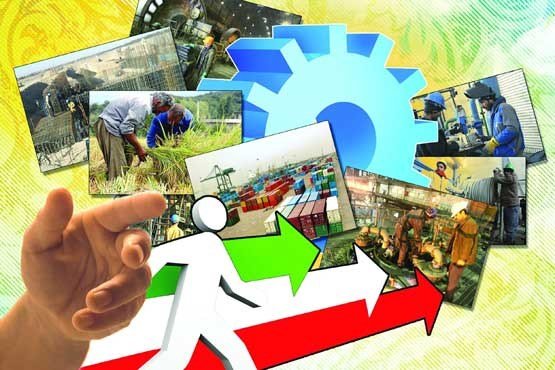Trial and error detrimental to economy

Whoever emerges victorious in the current month’s presidential election must act within the framework of the 20-Year Outlook Plan which has set policies until 2025.
Promises such as a sharp increase in cash subsidies by any presidential candidate falls outside the terms of the outlook plan.
Handing out cash subsidies to the majority of the people, as promised by certain candidates, will only drain the country’s coffer and leave a meager budget for developing the country’s infrastructure.
Currently, an absolute majority of the 80-million Iranian population, both rich and poor, are being paid about 12 dollars per month, and in April 2014 only a very small percentage of the citizens voluntarily did not register again to receive the subsidy.
To be fair this meager money is essential for some poor families or individuals, however with this money, which amounts to $40 billion per year, hundreds if not thousands of jobs can be created per month. This amount of money was equal to Iran’s oil revenues in the previous calendar year which ended on March 20, 2017.
Economy Minister Ali Tayyebnia said on Tuesday that payment of subsidy will not “uproot” poverty.
Paying money to citizens in certain very rich countries like Kuwait and Qatar with small populations may have justifications but in a country like Iran with more than 80 million population is not advisable. It is even irrational. In Iran the cash subsidy should only go for those really in need.
There is a view among many citizens that the cash subsidy is “oil money” which belongs to the entire nation and there is no reason that if somebody is rich or can make ends meet does not receive his or her share of it.
The distribution of money, especially after oil prices nosedived, put serious budget constraints on the government. The Parliament, aware of this fact, has tasked the government to cut cash handouts to families whose incomes is over 9,200 dollars per year. However, the government is very slow in enacting the ratification as there is not comprehensive data about families’ income. Moreover, it seems that the government is of the opinion that cutting subsidies will create a bad feeling among the citizens.
Parliament speaker Ali Larijani recently told the presidential candidates that it is impossible to increase cash subsidies by two or three times. The judiciary chief has also warned the candidates to avoid “baseless slogans”, noting that promises such as increasing subsidies entail careful studies. The central bank governor has also said any increase in subsidies necessitates a rise in energy prices which automatically lead to high inflation rate.
If the government distributes the oil money among the people then what will happen if oil prices fall further as they decreased from a high of $100 per barrel in 2013 to $40 in 2016.
The candidates should know that oil has found serious competitors. In addition to the shale and oil gas, the renewable energy resources, which are essential to save the planet earth, are threatening the future of fossil fuels such as oil.
In the first look the majority of people welcome cash handouts but it is economic and social experts who know about its repercussions.
Instead of distributing money the government should get money from the people through taxes in order to build a sustainable prosperous economy.
The economy got a departure from its path within the framework of the Outlook Plan from 2005 to 2013 as the sitting government did not believe in the plan and argued that it slows implementation of economic projects.
According to the April report of the International Monetary Fund, Iran’s economy is projected to rank 31st among 191 countries in 2017 in terms of GDP. Now it is not acceptable to resort to trial and error in such a big economy with over 80 million population.
Leave a Comment